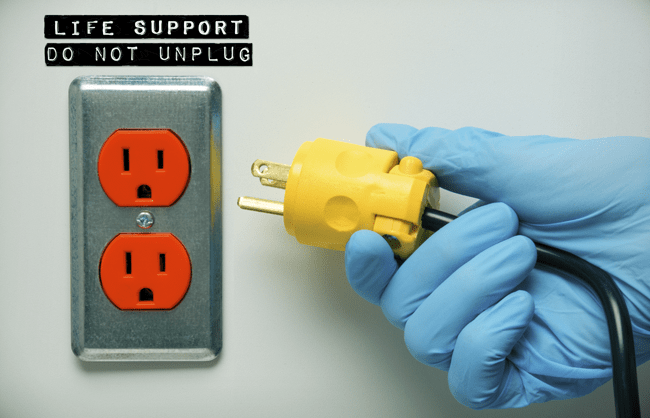A recent Sermo Physician Poll of nearly 2,000 doctors asked, “if faced with a terminal illness, what treatment options would you choose?” Of those responding:
♦ Palliative care 55%
♦ Hospice care 43%
♦ DNR 39%
♦ Unsure 16%
♦ Extraordinary measures 7%
The findings from Sermo, the number one social network exclusively for physicians, are consistent with other surveys over the years, including a study recently published in PLOS ONE, which highlighted a “disconnect” between what physicians say they would want for themselves and what they actual provide to their patients.
The PLOS ONE study also looked at physician’s attitudes toward advanced directives (ADs), comparing a cohort of 2013 doctors to a 1989 cohort (one year before the Patient Self Determination Act in 1990). The survey of more than 1,000 doctors found that 88% would choose a “no code” or “do-not-resuscitate” order for themselves.
When it came to attitudes toward ADs, compared to 1989, 2013 cohort did not feel that widespread acceptance of AD would result in less aggressive treatment even of patients who do not have an AD; had greater confidence in their treatment decisions if guided by an AD; and were less worried about legal consequences of limiting treatment when following an AD.
However, other than those 3 items, there were no significant differences in the doctors’ attitudes across the 1989 and 2013 cohorts in the other 11 of 14 items in the AD attitude survey—including that the overwhelming majority of physicians in both cohorts felt that prolonging life is more important than honoring a patient’s request to withhold treatment.
In an article, How doctors die (it’s not like the rest of us), Dr. Bernardo Goulart, a lung, head, and neck cancer oncologist with Seattle Cancer Care Alliance and affiliate investigator with Fred Hutch’s Hutchinson Institute for Cancer Care Outcomes Research, comments about physicians’ conflict with end-of-life care. “It involves difficult emotions for the physician including guilt, a sense of failure, a sense of abandonment,” he says.
He continues to suggest other possible factors that may play a role in a physician’s decision to pursue aggressive treatment, including a lack of training—learning to accept the limitations of interventions and consider palliative care as a transition of care—as well as the emotional discomfort required by doctors to explain why they are stopping therapy versus doling out an additional, albeit futile, treatment.
Push-back from families is also a consideration.
Physician’s Weekly wants to know… Only 7% of the respondents in Sermo’s survey would pursue extraordinary measures at the end of life. What would you chose? How do you approach end-of-life conversations with patients?


